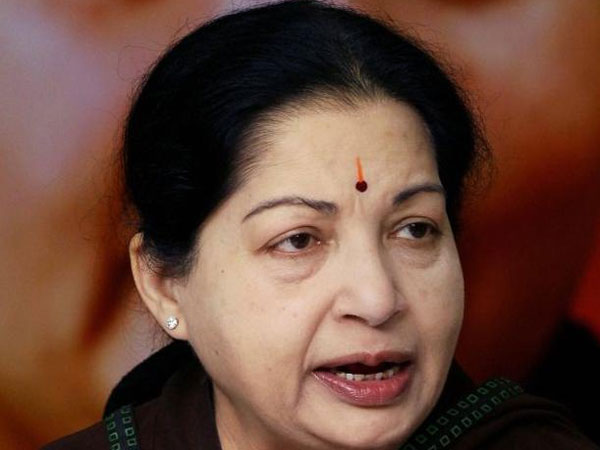
Jaya appeal: HC verdict illogical, cryptic and lacks reasoning
New Delhi, June 23: Lacks reasoning, cryptic and illogical is what the Karnataka government had to say about the verdict of the High Court which acquitted Tamil Nadu Chief Minister J Jayalalithaa and her three aides in the disproportionate assets case.

The appeal which was filed before the Supreme Court a while ago seeks to uphold the verdict of the trial court which had sentenced Jayalalithaa to four years imprisonment and imposed a fine of Rs 100 crore. There is no enhancement to the sentence sought though.

High Court verdict is illogical and cryptic:
Speaking out very strongly against the verdict delivered by the Karnataka High Court, the appeal termed the samea as illogical and cryptic. Terming the verdict as one without reasoning, the appeal further states that there has been gross miscarriage of justice in the High Court order.
Further the appeal has also called the arithmetic calculations in the High Court verdict as bad and said that this gave Jayalalithaa and three others the benefit of an acquittal. The High Court has wrongly valuated the construction and marriage expenses. The High Court has calculated the rates for construction of a sentry shed to fix the value of posh multi storied buildings, the appeal further states.
HC didn't bother to give a well reasoned verdict:
The appeal further states that the High Court judge, Justice C Kumaraswamy did not bother to record cogent reasons for reversing the verdict of the trial court. The trial court had in a well reasoned order given details and a proper explanation before convicting Jayalalithaa and also sentencing her, the appeal states.
Giving further reasoning on why the High Court verdict should be set aside the appeal by Karnataka says that it was erroneous calculations which became the main point for the acquittal. The High Court committed a major mistake while totaling the 10 items of loans and arrived at a figure of of Rs. 24,17,31,274.
However while totaling this correctly the figure comes to Rs. 10,67,31,274. As a result of this the disproportionate assets were shown at 8.12 per cent while the correct totaling would indicate the proportion to be at 76.7 per cent.
High Court had a pre-conceived notion:
The High Court appears to have taken a pre-conceived notion while delivering the verdict. The judge made a mistake while holding that the loans of the nationalized banks had not been taken into consideration by the prosecuting agency.
In fact the agency had taken this into consideration, the appeal states. The High Court judge has failed in his duties as an appellate judge and his verdict was was vitiated for his erroneous approach and failure to consider material evidence on record.
Lack of opportunity:
The appeal also questions the lack of opportunity given to the Karnataka government to present its arguments. The conclusions that were reached in the verdict borders on perversity of justice.
The judge ought to have given the prosecuting agency an opportunity. Further the appeal also questions the accused persons and states that they had never impleaded the Karnataka government in any of the proceedings.
Instead of curing this defect the High Court judge went an extra mile and reduced Karnataka to a non-entity in the appeal proceedings in the High Court.
Further the appeal also states that the entire appeal was heard in the high Court without a valid public prosecutor being appointed.
Citing Agnihorti case was wrong:
The appeal states that the citation of the Agnihotri case was wrong. The reasoning given in the Agnihotri case did not apply in this case since the assets in question here was running into several crores of rupees.
In the Agnihotri case it has been stated that no offence would be made out if the disproportionate assets were found to be less than 10 per cent of the income. In that case it was also noted that the excess assets found was to the tune of Rs 11,350 and hence the accused were acquitted as the disproportionate income was small.
However in the Jayalalithaa case the quantum is not small, the appeal states. The High Court has ignored the settled principles of law and has not gone into aspects such as conspiracy and abetments involving Jayalalithaa, Sasikala Natrajan, Ilavarasi and Sudhakaran.
OneIndia News


 Click it and Unblock the Notifications
Click it and Unblock the Notifications




























